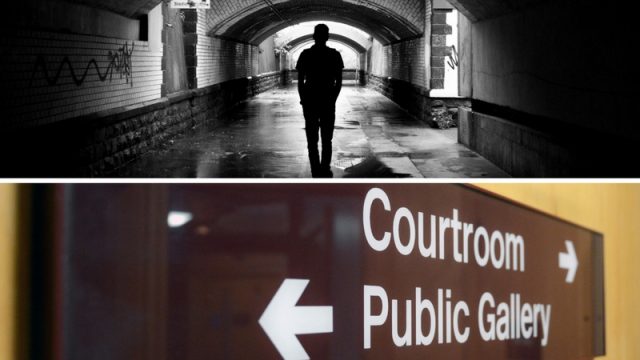Sexual Risk Orders may be imposed on individuals who are seen as posing a risk of sexual harm to the public, even if they have not been found guilty of a crime. Those subject to Sexual Risk Orders may be prohibited from engaging in a wide variety of behaviours, including overseas travel, and required to report to the police prior to engaging in sexual activity.
In 2016 Sky News found that more than 50 Sexual Risk Orders have been issued in England since their introduction in 2014, targeting those like IT consultant John O’Neill who have engaged in potentially dangerous, but not criminal, sexual behaviour. Last year, Somerset Live, reported that police in Avon and Somerset had imposed 13 Sexual Risk Orders, or ‘sex asbos’ as they’re sometimes described, since 2015.
Failure to comply with the terms of a Sexual Risk Order is a criminal offence, punishable by a sentence of up to six months in prison, or a fine, or both. More serious breaches carry a term of imprisonment up to five years.
In 2016 a Sexual Risk Order was made against John O’Neill, prohibiting him from using certain internet-connected devices and requiring that he give authorities 24-hours notice before engaging in ‘sexual contact’.
After being found not guilty of rape in 2016 a Sexual Risk Order was made against John O’Neill, prohibiting him from using certain internet-connected devices and requiring that he give authorities 24-hours notice before engaging in ‘sexual contact’. He challenged the order, arguing – in part – that it infringes his human rights.
"My children won't speak to me now." John O'Neill has to give police 24 hours notice before having sex #VictoriaLIVEhttps://t.co/TvsNI9TfF3
— Victoria Derbyshire (@VictoriaLIVE) July 19, 2016
His appeal was heard by District Judge Adrian Lower, who refused to terminate the Sexual Risk Order but agreed to modify its conditions – requiring that he now only give notice “as soon as is reasonably practicable” prior to forming a sexual relationship.
Since then the term of his Sexual Risk Order has been reduced from indefinitely to two years, and it came to an end on 22 September 2018.
Sexual Risk Orders Can Be Used to Prevent Child Sex Tourism
 Credit: Pixabay
Credit: Pixabay
There are clear human rights justifications for Sexual Risk Orders, particularly with respect to the United Kingdom’s obligations under the United Nations Convention on the Rights of the Child (UNCRC). Sexual Risk Orders allow authorities to take preventative action where there is evidence that a child may be at risk of sexual abuse from a specific individual, and can be used to prevent ‘child sex tourists’ from travelling to countries where the sexual exploitation of children is more prevalent. Orders can also be imposed to protect other vulnerable individuals, such as those suffering from mental or physical disabilities.
However, more intrusive Sexual Risk Orders like that imposed on Mr. O’Neill – which reportedly left him homeless, unable to find meaningful employment and incapable of forming emotional relationships – are not so clear-cut. This is particularly so given that there is no suggestion that he has engaged, or had a desire to engage, in inappropriate conduct with a child.
Requiring a person to notify police before engaging in sexual activity could infringe Article 8 of the Human Rights Convention, which governs people’s right to respect for private and family life.
Requiring a person to notify police before engaging in sexual activity could infringe Article 8 of the Human Rights Convention, which governs people’s right to respect for private and family life. This is because Sexual Risk Orders interfere with the privacy of people’s sexual relationships, which by their nature are very private and personal. A counter to this idea lies in the words of Article 8, which permits such an interference for the “prevention of disorder or crime” and “protection of health and morals”.
Doctor, Doctor – The Ban on Raising Sex-Related Topics with Medical Professionals
 Credit: Pixabay
Credit: Pixabay
A more troubling aspect of Mr. O’Neill’s case relates to his freedom to discuss sexual urges and fantasies with others, including medical professionals. Under the terms of the Sexual Risk Order he is prohibited from raising certain sex-related topics with medical professionals unless a third party is present. The expansive definition of “sexual contact” has also forced him to notify police before having such a conversation with friends. This could amount to a violation of his right to freedom of expression under Article 10 of the Human Rights Convention, particularly since impeding his access to medical help probably makes it more likely that he will commit a crime in the future.
See below for further reading on the topic:
- Guidance on Part 2 of the Sexual Offenders Act 2003 (see page 46 for more information on Sexual Risk Orders).
- What is the right to family life and why does it matter?
- Why the right to freedom of expression matters.







